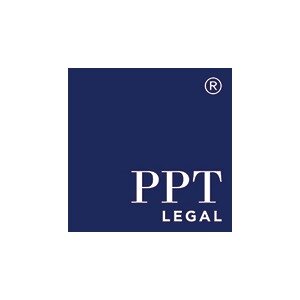Best Commercial Litigation Lawyers in Greece
Share your needs with us, get contacted by law firms.
Free. Takes 2 min.
Or refine your search by selecting a city:
List of the best lawyers in Greece
About Commercial Litigation Law in Greece
Commercial litigation in Greece involves resolving legal disputes related to business activities, including conflicts over contracts, business transactions, partnerships, competition, insolvency, and more. Greek commercial litigation is primarily governed by the Civil Procedure Code and relevant commercial laws. Greece maintains a civil law system, so litigation is generally a court-driven process with an emphasis on written proceedings, though oral arguments and evidence also play an important role. Both local businesses and international parties encountering legal disputes with a Greek connection can seek redress through the Greek courts.
Why You May Need a Lawyer
Legal issues in business can arise unexpectedly. Some common situations where individuals and companies may require legal help in commercial litigation include:
- Contract disputes, such as breach of contract or enforcement of contractual terms
- Debt recovery from clients, suppliers, or business partners
- Shareholder or partnership disagreements
- Disputes with customers or service providers
- Intellectual property infringement and protection cases
- Competition law violations or unfair trade practices
- Insolvency and bankruptcy proceedings
- Employment disputes arising in commercial contexts
- Cross-border commercial conflicts with international entities
A specialized lawyer can help assess your case, explain your rights, develop a strategy, represent you in court, and help with negotiation or settlement outside of court. Navigating Greek commercial law, with its procedural requirements and language barriers, often requires local expertise.
Local Laws Overview
Commercial litigation in Greece is structured around several key laws and principles that shape how business disputes are managed and resolved:
- Civil Procedure Code: This code sets out the rules for court proceedings, timelines, admissibility of evidence, and enforceability of judgments.
- Commercial Code and Special Statutes: Certain disputes, especially those involving companies, competition, trademarks, and bankruptcy, are subject to specific statutes.
- Types of Courts: Commercial disputes may be tried in District Civil Courts, Single-Member Courts, or Multi-Member Courts, depending on the amount at stake and the nature of the case.
- Appeals: Litigants can appeal decisions to higher courts, including the Court of Appeal and, in some matters, the Supreme Court (Areios Pagos), especially on points of law.
- Mediation and Arbitration: Greek law encourages out-of-court settlements and alternative dispute resolution mechanisms. Mediation, in particular, is often mandated before initiating some commercial lawsuits.
- International Aspects: Cross-border disputes may be influenced by EU regulations and international conventions, particularly on jurisdiction and recognition of judgments.
Frequently Asked Questions
What is the typical duration of commercial litigation in Greece?
The duration varies based on the complexity of the case, the court's workload, and procedural steps. Simple cases may conclude within a year, while complex litigation or appeals can extend over several years.
Is it mandatory to attempt mediation before filing a lawsuit?
For many types of commercial disputes, Greek law requires parties to attempt mediation before commencing litigation, except in certain urgent or straightforward cases.
Can foreign businesses or individuals sue in Greek courts?
Yes, foreign parties can bring claims in Greek courts if the dispute has a sufficient connection to Greece, such as the location of the business activity, contract, or asset in question.
What evidence is required in commercial litigation?
Typical evidence includes contracts, correspondence, invoices, payment records, and witness testimony. Written documentation is especially important in Greek courts.
What are the main costs involved in commercial litigation?
Costs include court filing fees, attorney fees, potential expert witness fees, and translation or notarization expenses for foreign documents.
Is the losing party required to pay the other side's legal costs?
Generally, the losing party is ordered to pay part of the prevailing party’s court costs and legal fees, but this does not always cover all expenses incurred.
Can decisions of Greek courts be enforced abroad?
Greek court decisions can often be enforced in EU member states under European regulations and, in some cases, in other countries, provided treaties or reciprocal arrangements exist.
How are urgent matters or injunctions handled?
Greek law allows for provisional measures, such as injunctions or attachments, in urgent situations to prevent harm or preserve assets until the main hearing.
Are there alternatives to going to court for resolving disputes?
Yes, mediation and arbitration are available for commercial disputes and can offer faster, more flexible, and often confidential resolution than court proceedings.
Do I need to appear in person in court?
Parties are usually represented by lawyers and may not need to appear personally unless their testimony is required. However, personal appearance might be needed in certain circumstances.
Additional Resources
The following resources can provide helpful guidance for those involved in commercial litigation in Greece:
- Hellenic Ministry of Justice: Publishes legal texts, procedural updates, and information on court operations.
- Greek Bar Associations: Offer directories to find qualified commercial litigators and provide guidance on legal rights.
- Chambers of Commerce and Industry: Provide support and advice for business disputes and mediation programs.
- Greek Ombudsman and Consumer Protection Authorities: Assist with resolving some business-to-consumer disputes.
- European Consumer Centres: Help with cross-border disputes within the European Union.
Next Steps
If you are facing a commercial dispute or anticipate litigation in Greece, consider the following next steps:
- Document all aspects of your case, including contracts, correspondence, and any evidence related to the dispute.
- Consult with a qualified Greek commercial litigation lawyer to assess your legal position, understand your options, and determine the best course of action.
- Consider the possibility of alternative dispute resolution methods, such as mediation or arbitration, which are frequently effective in Greece.
- Prepare for potential mediation requirements before initiating formal litigation in the courts.
- Gather information about the relevant court or tribunal, procedural deadlines, and required documentation.
Early legal intervention can help protect your rights, minimize losses, and improve your chances for a favorable resolution. Do not hesitate to seek professional help before making important business decisions related to legal disputes in Greece.
Lawzana helps you find the best lawyers and law firms in Greece through a curated and pre-screened list of qualified legal professionals. Our platform offers rankings and detailed profiles of attorneys and law firms, allowing you to compare based on practice areas, including Commercial Litigation, experience, and client feedback.
Each profile includes a description of the firm's areas of practice, client reviews, team members and partners, year of establishment, spoken languages, office locations, contact information, social media presence, and any published articles or resources. Most firms on our platform speak English and are experienced in both local and international legal matters.
Get a quote from top-rated law firms in Greece — quickly, securely, and without unnecessary hassle.
Disclaimer:
The information provided on this page is for general informational purposes only and does not constitute legal advice. While we strive to ensure the accuracy and relevance of the content, legal information may change over time, and interpretations of the law can vary. You should always consult with a qualified legal professional for advice specific to your situation.
We disclaim all liability for actions taken or not taken based on the content of this page. If you believe any information is incorrect or outdated, please contact us, and we will review and update it where appropriate.
Browse commercial litigation law firms by city in Greece
Refine your search by selecting a city.
















